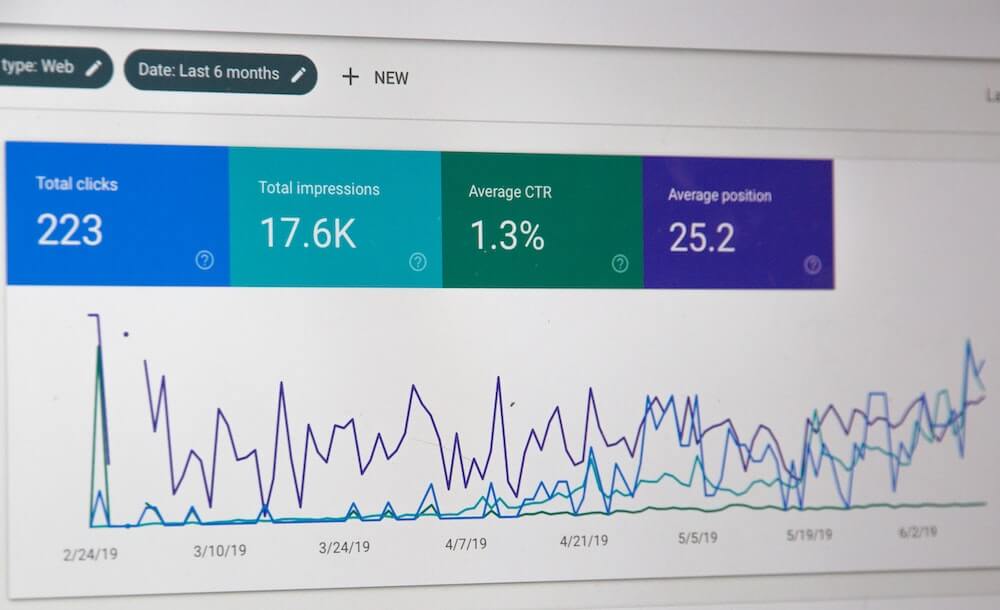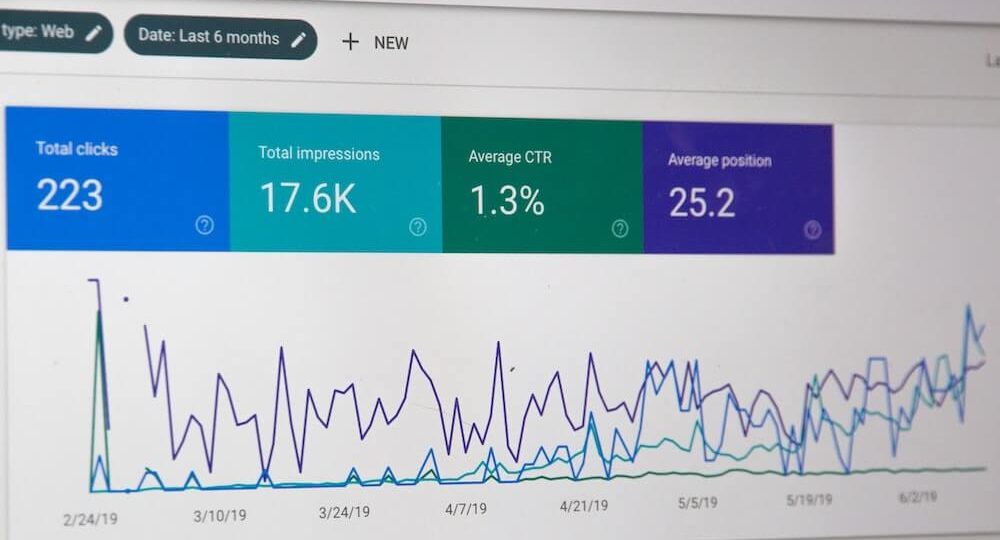SEO is a complex and strategic game, with new algorithm updates and changes to search engine results pages (SERPs) rolling out virtually every week. SEO strategies that worked this year could well be relegated to the backseat next year.
With that in mind, and with the curtain closing on 2019, we wanted to take a moment to pause and reflect on this year’s game-changers, while recommending key takeaways for 2020.
So, we’ve rounded up the best SEO practitioners in our agency, bringing you their expertise on what to focus on in the new year. We asked them the question:
What is the most important element of SEO for 2020?
Read on to know what you should keep in mind for your SEO activities in 2020.

Chris Redshaw Director & Co-Founder at Reef Digital Agency Chris Redshaw on LinkedIn
It depends on who is asking and where they are in their SEO journey. For people who are just getting started with SEO, strategy is the most important item. Once you have a strategy, it’s then team and speed to implement. And once you have team and speed to implement, it’s organisational education.
Strategy, the right plan of action, determines everything that follows. It should consider where you are, where you want to be, and determine the best way to get there.
How do you get there? Most of it boils down to excellence in these three core SEO categories:
- Technical: Does my site function well, and quickly, across popular devices and browsers, and is it easily interpretable and indexable by search engine crawlers?
- Content: Do we have content that educates, entertains, inspires and informs our audience, across the different stages of their conversion journey, in the formats they like to consume?
- Promotion: Are we getting the attention of influential people and websites in our space, earning links and social shares, and are our customers advocating for our brand online in ways search engines understand (e.g. 5-star reviews, forums, etc.)?
When the right strategy is in place, it’s then about team and speed, i.e. do we have people with the right skillsets, are they working together and getting things live?
Finally, the one element that underpins all of this is organisational education: Does everyone working on the website understand that SEO is important, and know that they should have a quick chat with us before making changes?
Get this right to get ahead and stay there.

Scott Pittman General manager at Reef Digital Agency Scott Pittman on LinkedIn
There seems to be a big push towards relevance which is Google’s mission. To be more precise, rather than a new focus on relevance, I mean Google’s ability to better identify user intent and match content to this intent thus improving relevance. The recent updates all seem to be geared towards tightening this up and advancements in algorithms to enable this – BERT and natural language/user intent, Bedlam and local, several core updates, an emphasis on EAT in the webmaster guidelines, increased elements curated from the website and appearing in the SERPS (e.g. snippets) etc.
How you improve the relevance of the page will include all the other SEO best practices:
- Copy/creative optimised for user intent
- UX for optimised conversion rates
- Page speed
- Structured data
- Optimising for snippets, and of course keywords (inc. long tail)
- Relevant internal and external linking to credible sources
- Relevant inbound links
Also thinking about the site as a whole with the objective of serving an audience, rather than thinking about pages to serve a handful of relevant keywords (regardless of how relevant) is probably the best mindset to approach your SEO strategy for 2020.

Ishita Sehdev Head of SEO at Reef Digital Agency Ishita Sehdev on LinkedIn
Google is adding more brand signals and focusing on GMB as an important digital touchpoint during the customer journey. From introducing a beta feature to enable “store visit tracking” and connecting it with channel data to getting a patent for “Quality visit score” and piloting a new feature “Local Favorite” in Google Maps where Local guides will provide their recommendations thus promoting the top 5% of businesses in a category. These are all indications that Google is heading towards promoting local businesses and capturing the online eCommerce market.
In my opinion, in 2020 GMB will become a powerful local engagement platform for businesses. Where overall rating/ranking may be defined by reviews, quality visit measure, navigation requests, check-ins on social media to geotagged photos & hashtags. The “quality visit measure” may become a ranking signal to rank a business higher in a list of local search results.
The consistent iterations in GMB are evidence to remove any friction during the customer journey on mobile searches & making it seamless for businesses to connect with their customers across Google search and maps. From promoting content in the form of “updates” to showcasing “products and services” and bringing it one step closer to conversion with Call to action all in one platform.

Robert Perez SEO Manager at Reef Digital Agency Robert Perez on LinkedIn
A keyword focused website structure is critical for ranking for your target keywords. This is an often overlooked but a very important element for SEO. Basically you need to tell Google what your website is about & your URL structure should be used as a “tool” to accomplish that. For example, if you don’t explicitly tell Google what your core services & products are, how is it supposed to know what to rank you for it. If it doesn’t exist on your website, then it’s invisible.
You’ll need to make sure your core products or services are accurately reflected in your website structure & most importantly matches what your market wants.

Anuradha Mane Wadhwani Senior Content & SEO Manager at Reef Digital Agency Anuradha Mane Wadhwani on LinkedIn
Google continues to reward sites that take time to understand their audience and create a good onsite experience for them. Looking at your onsite content as a holistic and natural component of your digital strategy is increasingly important. Google’s BERT Update will vastly improve the interpretation of complex long-tail search queries to display relevant search results.
So, well-researched, thoughtfully created and optimised content will be the most important element of SEO in 2020 – be it product/service copy, long-form content, videos, blogs, checklists, podcasts, infographics or anything else.
This one element can fulfil so many different roles – right from actually addressing the question/intent that brought users to your site to helping your site gain authority over time.
In 2019 we saw that authoritative content was also what helped sites outrank competition and claim more real estate in SERPs with ever-evolving features like featured snippets, knowledge graphs, local packs, and People Also Ask.
More importantly, great content also helps you naturally acquire quality backlinks, which is still a crucial ranking factor.
After all, Google only loves you when everyone else loves you first! Research-driven, well-structured, thoughtfully created content is one way to make this happen in 2020.

Melanie Williams Head of CRO and Strategy at Reef Digital Agency Melanie Williams on LinkedIn
I find the increasing use of structured data really interesting. Adding a simple code to your website and/or page makes it easier for Google to understand what your page is about and that will certainly help with ranking. More than that, adding structured data allows you more real estate in SERPs and a richer experience with your snippets – showing more specific information to your customers.
Not only will structured data drive higher engagement rates, it will generate more traffic from the right type of customer. Ideally, you want customers who are highly engaged with your offering coming to your site, not wasted clicks from those who ended up there by mistake. Quick and simple to implement, win/win for both customers and businesses.

Piotr Olesson SEO Manager Piotr Olesson on LinkedIn
Page speed has been an important ranking factor for a long time now, but is especially important for 2020 given recent algorithm updates. Google’s updates in 2019 and 2018 have been consistently emphasising the importance of optimising page load times. Some of these updates include:
- The “Speed Update” in July 2018 indicating that page speed on mobile devices will be a ranking factor.
- Google releasing the Light House within the chrome browser to optimise load times.
- Mobile first indexing – page speed is one of many important ranking factors
- Launching and re-optimising the Google Page Speed Insights tool.
- Launching the site wide Google Search Console Page Speed Report (experimental report) in November 2019
- Google recently announced that they’re planning to launch browsers in the near future with features designed to identify and label slow loading websites.
Clearly Google is indicating that page speed will continue being an important area of focus for business with their past and upcoming activities.

Tessa Clout Junior Content & SEO Specialist Tessa Clout on LinkedIn
The number of search engine users is increasing annually, therefore high quality and optimised content, that answers relevant questions in your market will be the most important element of SEO strategy in 2020.
If your content has not been updated recently, the new year is the perfect time for you to start fresh keyword research and get a real understanding of what users are searching for. Remember, you don’t always need to go for those high volume keywords. Low volume keywords have a lot less competition, and will increase your relevancy for the keyword grouping, which will automatically benefit your rankings for those more competitive terms.
Once you understand what your target market is searching for, you need to revisit and optimise your existing content, or create new content assets which answers queries you want to rank for. One rule to follow in 2020 is to create content for the user, not just the search engine. Google will rank content which users love and are engaged with. Content that is written purely for the search engines will be found out and likely depreciate in value for your website.

Gwendolyn Ai Social Media Manager Gwendolyn Ai on LinkedIn
Writing a unique, customised and relevant meta description for every page on the site.
This is essential to increasing the number of keywords your site is ranking for and the relevancy of the landing page to your target market. If you haven’t written meta descriptions, Google will automatically pull text from anywhere on your page, as an auto-filled description. By writing unique descriptions, your page will be served with an accurate snippet in SERPs, and you’ll attract the right traffic.
Unique descriptions attract the right traffic, because they meet the expectations the user will have for their on-page experience. Let’s consider an eCommerce site. A user searching for your brand will expect to be served your about us page. If your description is duplicated, or auto-filled, users may accidentally click through to a different page, which won’t provide the information they’re looking for.

Ishara Amarasinghe SEO Specialist Ishara Amarasinghe on LinkedIn
AI and algorithms are becoming increasingly more important in the years to come. As computing power increases, algorithms and machine learning become a greater force. Digital marketers will need to adapt to the new algorithm capabilities introduced by Google’s BERT update. Understanding natural language/conversational language within a nuance becomes ever so important.
With increased AI understanding, you’ll need to be strategic to take advantage of voice search, which leads me to content. With content, good on-page principles are required to structure the specific subject at hand, especially in conjunction with the bidirectional nature of BERT which allows for a deeper understanding of language and how one sentence should flow with the next sentence.

Jennie Gustafsson Digital Designer Jennie Gustafsson on LinkedIn
I think the most important element of SEO for 2020 is optimising the user experience on landing pages, especially for mobile, since that’s what most people are using now and will be using in 2020.
Studies predict that the number of smartphone users will exceed 4.7 billion by 2020. Optimising for user experience includes everything from making sure that the page is:
- Easy to use
- Secure
- Loads quickly
- Provides the user with content they learn something from
If your pages aren’t user-friendly, statistics show that users will bounce off anyway, which will affect your overall ranking on search engines.
Want to improve your SEO strategy and grow organic traffic in 2020? Reef can help you revitalise your SEO strategy, or get SEO started in your organisation. Get in touch with us to start a conversation, and take your SEO to the next level in 2020.
Stay on top of the latest digital marketing news and trends by following us on LinkedIn, facebook, YouTube or Twitter.

